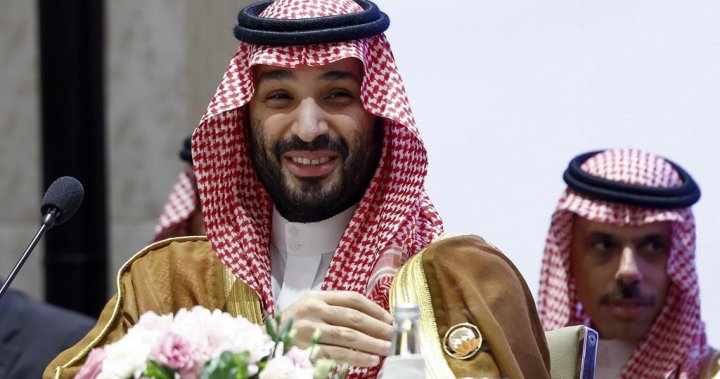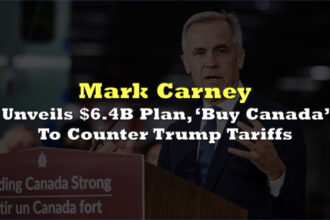The diplomatic dance between Canada and Saudi Arabia took a significant turn today as Prime Minister Justin Trudeau confirmed that an invitation to the upcoming G7 Summit has been extended to Saudi Crown Prince Mohammed bin Salman. This development marks a notable shift in relations that had previously been strained to the breaking point following Canada’s 2018 criticism of the kingdom’s human rights record.
“Engagement with countries that have different perspectives is essential for making progress on global challenges,” Trudeau stated during a press conference in Ottawa. “The G7 outreach session will bring together diverse voices to address critical issues including climate change, economic stability, and regional security.”
The decision comes amid growing economic pressures and shifting geopolitical realities. Canada, which holds the G7 presidency this year, has been working to rebuild its relationship with the oil-rich nation since diplomatic ties were effectively severed when Saudi Arabia expelled Canada’s ambassador, recalled thousands of students, and suspended new trade deals in response to Canadian criticism of Saudi human rights practices.
Foreign Affairs Minister Mélanie Joly emphasized that the invitation represents pragmatic diplomacy rather than endorsement. “We continue to have serious concerns about human rights in Saudi Arabia,” Joly told reporters. “But solving global challenges requires dialogue with all major players, including those with whom we have disagreements.”
The G7 Summit, scheduled for June in Quebec’s Charlevoix region, will bring together leaders from the world’s most advanced economies. The invitation to the Saudi Crown Prince comes as part of the summit’s outreach component, which typically includes leaders from non-G7 nations to discuss specific global challenges.
Economic considerations appear to be influencing this diplomatic reset. Trade between Canada and Saudi Arabia, which plummeted after the 2018 dispute, has slowly begun recovering. Canadian exports to the kingdom reached $1.46 billion in 2023, though still below pre-dispute levels of approximately $4 billion annually.
Energy security experts note that the timing aligns with broader Western efforts to engage Saudi Arabia amid global energy market volatility. “Canada is recognizing what other Western nations have already acknowledged – that Saudi Arabia remains an indispensable player in global energy markets and Middle East stability,” said Dr. Amira Hassan, director of the Institute for Energy Economics at the University of Toronto.
The invitation has sparked mixed reactions across Canadian political circles. Opposition critics question whether the government has secured any meaningful human rights commitments in exchange for this diplomatic overture. Conservative foreign affairs critic Michael Chong argued that “normalization without accountability undermines Canada’s credibility on human rights.”
Meanwhile, human rights organizations have expressed alarm. Amnesty International Canada called the invitation “deeply troubling given ongoing executions, detentions of dissidents, and lack of accountability for the murder of journalist Jamal Khashoggi.”
The Crown Prince, widely known as MBS, has pursued an ambitious modernization agenda within Saudi Arabia while facing international criticism over human rights concerns, particularly following Khashoggi’s 2018 killing at the Saudi consulate in Istanbul. A U.S. intelligence report concluded that MBS approved the operation, an accusation Saudi officials have consistently denied.
For Canada, this diplomatic maneuver represents a delicate balancing act between principled advocacy and pragmatic engagement. The Trudeau government faces the challenge of maintaining its stated commitment to human rights while pursuing economic and strategic interests in an increasingly complex global landscape.
As Canada prepares to host the world’s most influential democratic economies, this invitation raises a fundamental question about modern diplomacy: Can meaningful progress on global challenges be achieved by engaging with nations whose values diverge significantly from our own, or does such engagement ultimately undermine the very principles we claim to champion?














